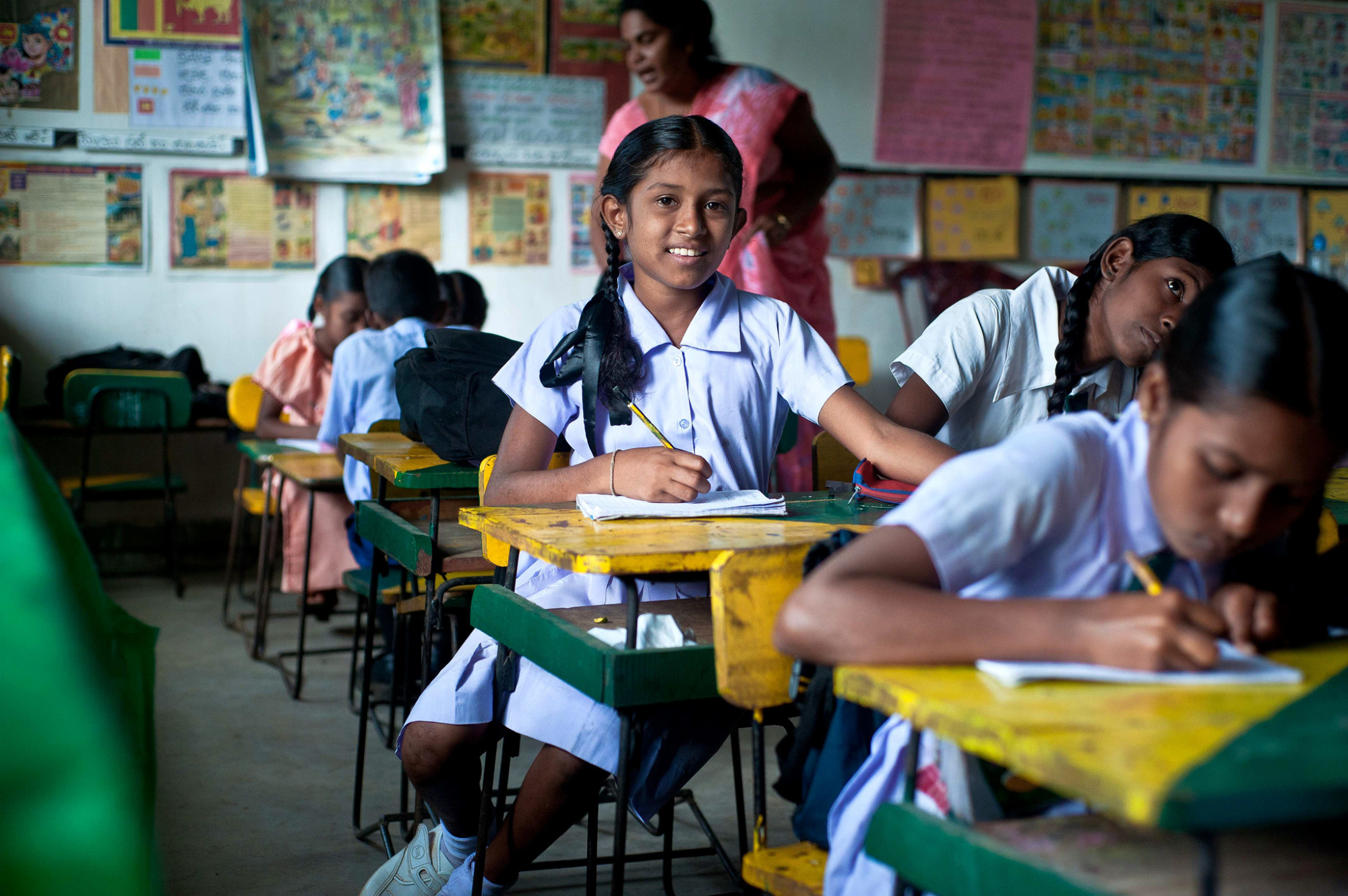3 Things You Need to Know about this Week’s IMF/World Bank Spring Meetings

Photo by Deshnan Tennekoon/World Bank
Every spring, the International Monetary Fund (IMF) and the World Bank hold a series of high-level meetings and events in Washington, DC. The goal of these meetings and events is to discuss the progress towards development goals of the World Bank and IMF.
Below are 3 key things you need to know about these meetings, along with information on the events that GBC-Education will be hosting around them.
What are the International Monetary Fund (IMF) and the World Bank?
The International Monetary Fund and the World Bank are essential in providing financial assistance to developing countries. This assistance is especially important for supporting education investment and development initiatives.
The International Monetary Fund (IMF) was established in 1945 as a way to foster collaboration between nearly 190 countries around issues, including: global monetary cooperation, financial stability, international trade, employment and sustainable economic growth, and poverty reduction.
The IMF focuses on ensuring the stability of the international monetary system. One of it’s primary functions is to provide loans to member countries that are experiencing fiscal problems, in addition to facilitating international trade and reducing poverty throughout the world. The World Bank provides financial and technical assistance to developing countries. Similar to the IMF, it provides low-interest loans and grants to low- and middle-income countries. The World Bank plays an important role in supporting the funding of education, ensuring that governments can allocate resources to education when they would otherwise be unable to do so.
What are the Spring Meetings?
The IMF/World Bank Spring Meetings typically occur each April in Washington, DC. These meetings provide a platform for stakeholders to discuss issues relevant to development and humanitarian relief. An example of this is the participation of civil society organizations (CSOs) during the Civil Society Policy Forum (CSPF).
Education and youth development will be a priority during the Civil Society Policy Forum. Topics that will be discussed include: investing in early childhood development and education, supporting adolescents, free education and low-fee private schools, and education in emergencies.
During the meetings, the International Monetary and Financial Committee will convene alongside the World Bank-IMF Development Committee. Both of these committees, which are advisory bodies to the IMF and World Bank, respectively, will discuss progress on a number of World Bank and IMF policy initiatives, and what steps will need to be taken to achieve certain development goals.
What events will GBC-Education be holding?
On Thursday, April 20th, the Global Business Coalition for Education will be holding three events that will address key issues in ensuring education is accessible to children and youth around the world. These issues include education financing, early childhood development, and education in emergencies.
In our first event, world leaders will discuss the future of education financing, and how to bring business, philanthropy, and government together to address the education investment gap. If education investment remains at current levels, then by 2030, 800 million of the 1.6 billion young people will not have the skills necessary for employment. During the breakfast, world leaders will look at ways to accelerate progress towards delivering quality education for all of the world’s children and youth.
In our second event, business leaders will look at the business case for the private sector to build effective partnerships, develop innovative solutions, and mobilize attention to better deliver quality early childhood development (ECD) programs and services. Early childhood development is a smart investment for businesses and is essential towards ensuring that future generations are able to learn the skills needed for an increasingly complex and collaborative workforce.
In our third and final event, GBC-Education will convene donor agencies and implementing partners for an update on progress made through the Rapid Education Action (REACT) initiative and our continuing commitment to education in emergencies. REACT emerged in response to the launch of the Education Cannot Wait fund for education in emergencies, which was established during last year’s World Humanitarian Summit. As the world faces its largest refugee crisis since World War II, the international community needs to stand up to ensure that a whole generation of children does not lose out on a quality education.
For real-time updates from our events this week, be sure follow GBC-Education on Twitter, Facebook and LinkedIn. If you would like to learn more about the GBC-Education events or how to get involved, please contact Catalina Caro at [email protected] or Julia Kilgore at [email protected].
Stay tuned for more information from Washington!
For more information about the IMF/World Bank Spring Meetings, please visit the event website here. In addition, the Civil Society Policy Forum event details and schedule can be found here.
